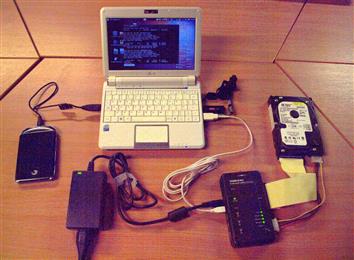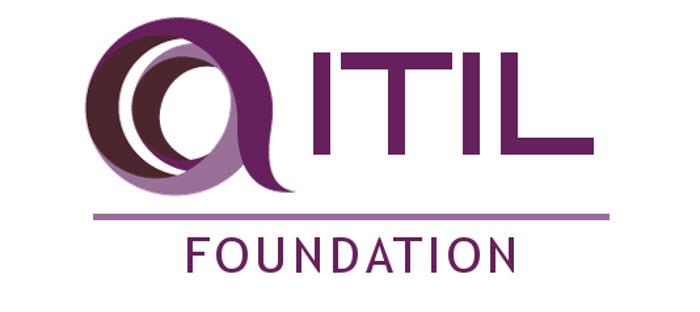Open-source Research tools and vulnerability scanners

To keep one’s business on the market, data integrity and research plays a vital roles. There are many cloud and enterprise solutions of nowadays insists on the protection of the system from vulnerability. Here are some of the open-source projects concentrating on the research and vulnerability management.
The Radare project is a Unix-like reverse engineering framework and command-line tool for Android, Linux, BSD, iOS, OS X, Solaris, Haiku, FirefoxOS, and QNX, as well as both 32- and 64-bit Windows. The project started as a forensics tool and a scriptable command-line hexadecimal editor, but has since added libraries and tools for analyzing binaries, disassembling code, debugging programs, and attaching to remote gdb servers. Radare supports a broad range of architectures -- Intel-based, ARM, Sparc, and PowerPC, to name a few.
Brakeman is a vulnerability scanner for Ruby on Rails apps that lets infosec pros analyze data flow from one part of the application to another. Brakeman helps administrators uncover problems in Web applications such as SQL injection, SSL verification bypass, and information disclosure vulnerabilities. Brakeman should be used with a website security scanner.
Quick Android Review Kit (Qark) looks for security vulnerabilities in Android applications, either in the source code or packaged APKs. The tool looks for issues such as inadvertently exported components, improper x.509 certificate validation, data leakage, private keys embedded in the source code, weak or improperly used cryptography, and tap-jacking, to name a few. Qark provides information about the nature of security vulnerabilities found, as well as the ability to create proof-of-concept APKs that could exploit them.
For malware analysis, there's Cuckoo Sandbox, an automated dynamic malware analysis system that originated in 2010 as a Google Summer of Code project. Cuckoo lets security teams detonate suspicious files and monitor the resulting behavior in an isolated virtual environment. Cuckoo dumps the memory and analyzes the data -- such as tracing API calls and logging all files created and deleted -- to determine exactly what a suspicious file is doing on the system.
Jupyter is not a security-specific project, but the shareable notebooks are a must-have for any security toolkit. Security professionals can share live code, visualizations, and explanatory text with individual notebooks, which come with an embedded shell. There are additional tools to enhance the project, including Jupyterhub, a multiuser server, a diff tool, a Docker stack, and an OAuth package.
Choose a training provider to learn IT courses
Java training | J2EE training | J2EE Jboss training | Apache JMeter trainingTake the next step towards your professional goals in Information Technology
Don't hesitate to talk with our course advisor right now
Receive a call
Contact NowMake a call
+1-732-338-7323Related blogs on ITIL Foundation to learn more

ITIL Intermediate Certification Exam Questions and Answers
We have compiled ITIL intermediate exam sample questions along with the answers explaining the reasons for you to quickly recap what you have learned before appearing the ITIL Intermediate certification exam. These exam dumps are quick capsule for yo

ITIL Expert Level Certification Exam Sample Questions and Answers
We have compiled some ITIL Expert exam questions and answers with a proper explanation for the right answer. These certificate prep questions and answers will be a quick capsule to gulp before appearing the exam. This certificate will advance candida

ITIL Practitioner Certification Sample Exam Questions and Answers for Practice
These ITIL practitioner exam questions and answers will help you to quickly review your knowledge and improve chances of pass rate while appearing for the certification test. Considering attendee’s preparation and participation we have produced these

Top 35 ITIL Foundation Certification Exam Questions
We have compiled multiple choice ITIL foundation exam questions and answers for best practices and to quickly recap what you have learned and attempt the certification exam successfully.

How Can ServiceNow Boost Efficiency Of Corporate Legal, Marketing And Finance Departments?
Service Now Inc. is a cloud computing company that offers platform-as-a service (PaaS) and organization management softwares for the various departments in an organization, such as law, human resources, facilities management, marketing, finance, and

How to Improve Marketing Service Delivery with ServiceNow
The marketing department is responsible for the creation of brand visibility, positioning, driving consistent messaging and generating the demand to support the business goals. Lacking of a central knowledge base for the marketing guidelines, unstruc

Let Your IT Career Soar High As A ServiceNow Certified Professional
All the functions in an organization today are service driven. Functions like Finance, Marketing, HR, Support and Sales comprises of the people delivering all these services to others. When these services, are provided to the employees of an organiza

How to Drive Successful Service Management Projects?
Behind every prudent initiative lies strategic objective. These objectives help in restructuring of knowledge base, completely change the processes surrounding the request management and integrate systems. Poor communication, data interpretation and

How Can ServiceNow HR Service Management Streamline Human Resource Functions?
The functions of the Human Resource department range from solving simple questions from employees to highly involving functions like entry, exit, training and performance evaluation of employees. Many HR service management tools are too complex to op

How to Perk Up The Efficiency Of An Organization Employing ServiceNow Tools?
ServiceNow automates all the IT operations of an organization and thereby creates a single system of record for the IT processes within an enterprise. This system brings all the processes together, such as the design, IT strategy, transition and oper
Latest blogs on technology to explore

Drug Safety & Pharmacovigilance: Your 2026 Career Passport to a Booming Healthcare Industry!
Why This Course Is the Hottest Ticket for Science Grads & Healthcare Pros (No Lab Coat Required!)" The Exploding Demand for Drug Safety Experts "Did you know? The global pharmacovigilance market is set to hit $12.5B by 2026 (Grand View Research, 202

Launch Your Tech Career: Why Mastering AWS Foundation is Your Golden Ticket in 2026
There’s one skill that can open all those doors — Amazon Web Services (AWS) Foundation

Data Science in 2026: The Hottest Skill of the Decade (And How Sulekha IT Services Helps You Master It!)
Data Science: The Career that’s everywhere—and Nowhere Near Slowing Down "From Netflix recommendations to self-driving cars, data science is the secret sauce behind the tech you use every day. And here’s the kicker: The U.S. alone will have 11.5 mill

Salesforce Admin in 2026: The Career Goldmine You Didn’t Know You Needed (And How to Break In!)
The Salesforce Boom: Why Admins Are in Crazy Demand "Did you know? Salesforce is the 1 CRM platform worldwide, used by 150,000+ companies—including giants like Amazon, Coca-Cola, and Spotify (Salesforce, 2025). And here’s the kicker: Every single one

Python Power: Why 2026 Belongs to Coders Who Think in Python
If the past decade was about learning to code, the next one is about coding smarter. And in 2026, the smartest move for any IT enthusiast is learning Python — the language that powers AI models, automates the web, and drives data decisions across ind

The Tableau Revolution of 2025
"In a world drowning in data, companies aren’t just looking for analysts—they’re hunting for storytellers who can turn numbers into decisions. Enter Tableau, the #1 data visualization tool used by 86% of Fortune 500 companies (Tableau, 2024). Whether

From Student to AI Pro: What Does Prompt Engineering Entail and How Do You Start?
Explore the growing field of prompt engineering, a vital skill for AI enthusiasts. Learn how to craft optimized prompts for tools like ChatGPT and Gemini, and discover the career opportunities and skills needed to succeed in this fast-evolving indust

How Security Classification Guides Strengthen Data Protection in Modern Cybersecurity
A Security Classification Guide (SCG) defines data protection standards, ensuring sensitive information is handled securely across all levels. By outlining confidentiality, access controls, and declassification procedures, SCGs strengthen cybersecuri

Artificial Intelligence – A Growing Field of Study for Modern Learners
Artificial Intelligence is becoming a top study choice due to high job demand and future scope. This blog explains key subjects, career opportunities, and a simple AI study roadmap to help beginners start learning and build a strong career in the AI

Java in 2026: Why This ‘Old’ Language Is Still Your Golden Ticket to a Tech Career (And Where to Learn It!
Think Java is old news? Think again! 90% of Fortune 500 companies (yes, including Google, Amazon, and Netflix) run on Java (Oracle, 2025). From Android apps to banking systems, Java is the backbone of tech—and Sulekha IT Services is your fast track t